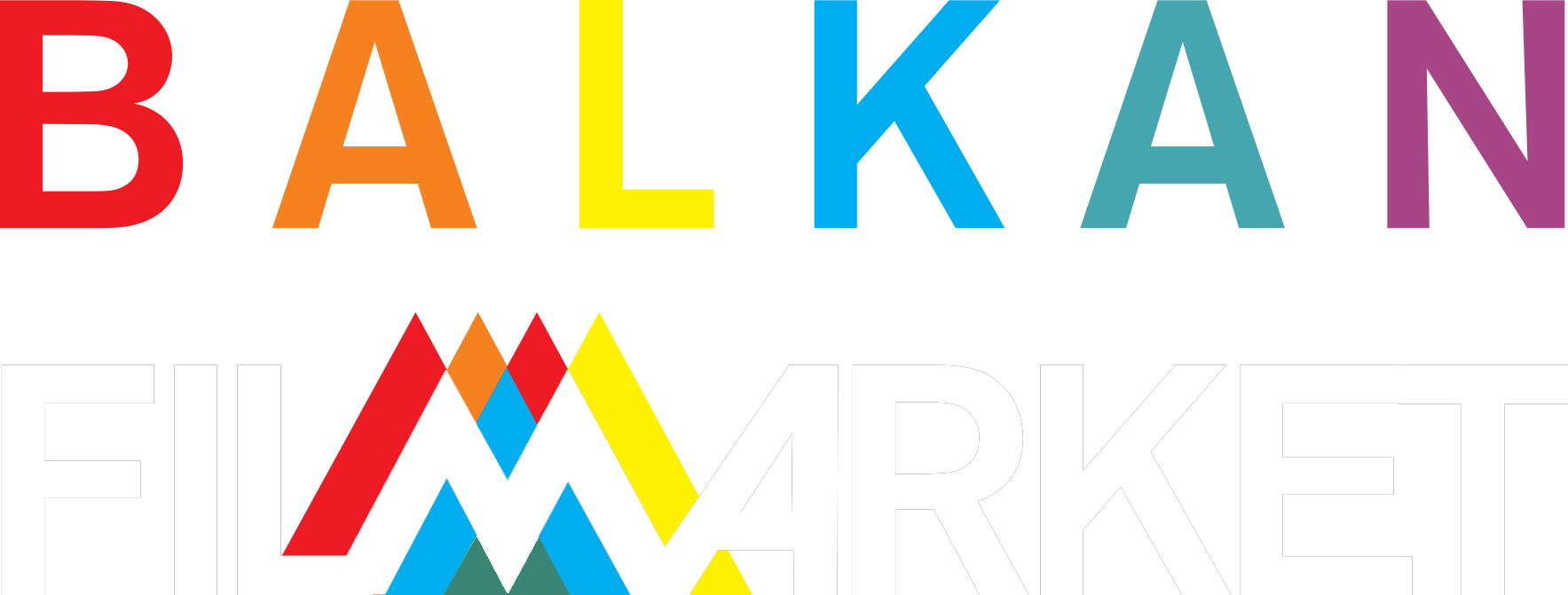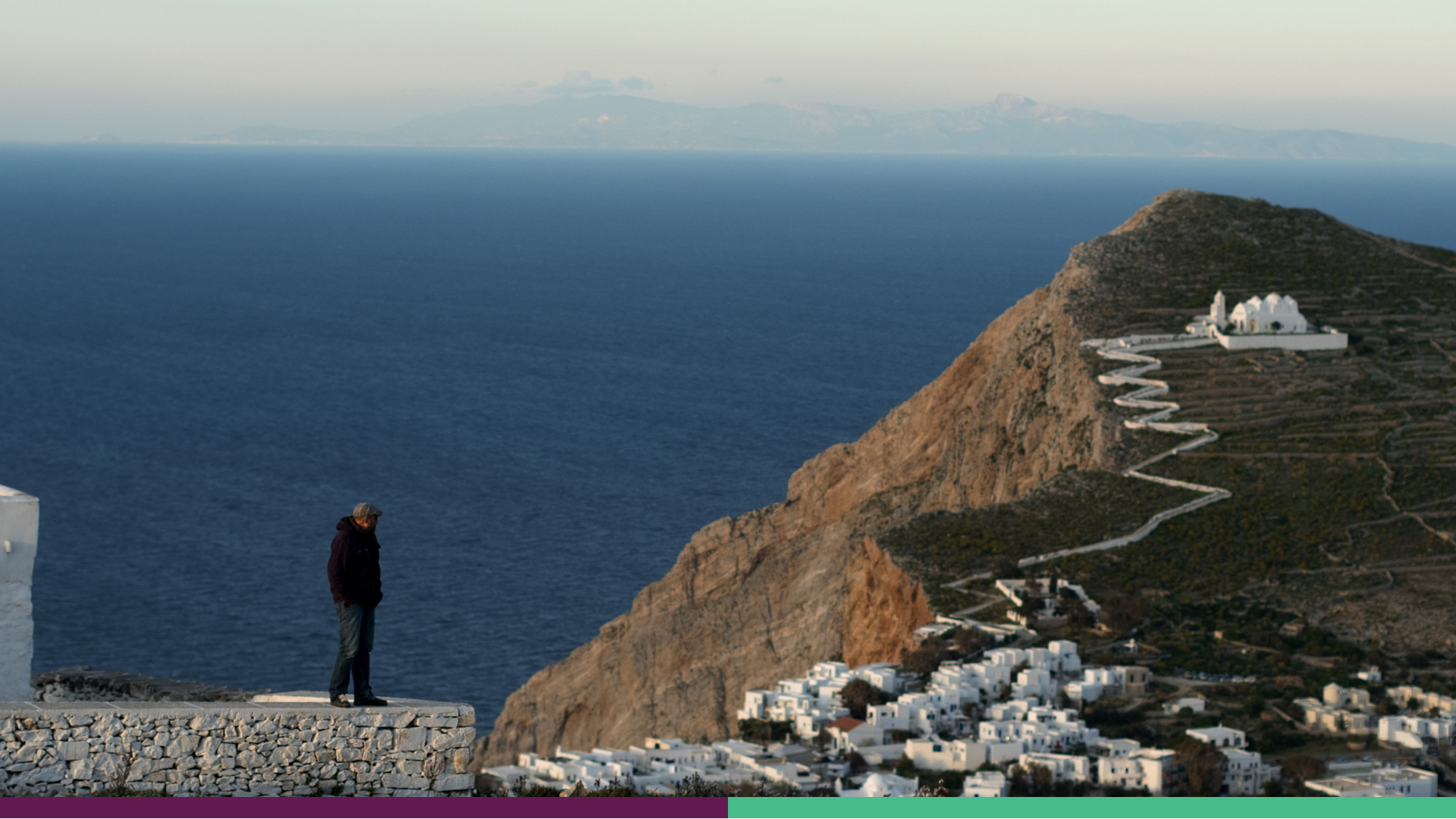Peculiar administration on unknown Mediterranean Island turns the street artist efforts to return home into a Kafkian process of collecting documents thus revealing deep secrets of his life.
SHADOWS OF MEDITERANEAN
Date
09/11/2020
Director
IVAN JOVIC
Producer
Country
Serbia
Total budget
681.700 €
Full PDF
After years of traveling as a street artist, performing as motionless sculpture, Lazar finds himself on a small Mediterranean island. He starts to feel nostalgic for his home, but his departure from Island is complicated by the inability to properly communicate with Island’s administration. We follow tiresome work on collecting documents which should enable Lazar’s departure. Meetings with Clerks become stranger as their questions go beyond the administrative frame and look into the most intimate parts of Lazar’s life. His every resistance is a threat that could stop the process of leaving the Island. He is claustrophobically trapped in a shifted Kafkian reality, in which he is going from one to another Clerk, patiently answering questions and meeting their demands. From the interviews with the Clerks, we find out that Lazar left his family and spent his life as a traveling artist, searching for freedom. Now he is going from one to another office on the Island and carries a heavy black box containing his „complete documentation”. The exhausting process of collecting documents turns into a reconsideration of the meaning of life and deep secrets hidden from oneself. Worn-out from uncertainty and painful truth, Lazar comes to the very end of the administrative process. He learns that the administration has archived his whole life and he gets an opportunity to see the complete archive of his own life. At the end of the story, we find out that the story takes place on the other side of life: Lazar died on his journey and the posthumous collection of documentation serves his spiritual realization and final self-awareness that will enable him to leave the Island and to spiritually meet with his father. The unusual Island and its Administration, with exhausted people from the Middle East, all of which he sees during the process – represent a waiting room between life and death. Lazar’s father arrives at the Island and receives the same black box filled with his son’s bones that he can finally take home. The story keeps us uncertain about the outcome of Lazar’s long trip: will the main hero return to the spiritual home, leaving the escapist paradise of the sunny Mediterranean, the place he was looking forward to while alive? Who are unusual Clerks and what do they actually do for Lazar? This displaced story reminds us that responsibility arises from the existential fact that life is a chain of questions to which a person must answer by being responsible to him/herself and others and that he or she is the one who decides which answer to give to each individual question. And also: for each question there is only one answer – truthful one.
Ivan Jovic was born in 1971. He graduated at Teacher Education Faculty, University of Belgrade and finished his MA studies at Faculty for Special Education. He also finished film school at Centre for Visual Communications Kvadrat in Belgrade. He is owner and producer of Terirem production.
His first feature film “The Healing” which won several international and national awards, including Signis award at Trento, Golden Knight at Sevastopol, Zlatno sonce in Skoplje (Cinedays), best Serbian film at FEST in Belgrade etc.
After five years of work on archival-film project “Legacy” he made a documentary film of the same title, about civilian suffering during the World War II on territory of Independent State of Croatia in 1941-1945. It is a unique cinematic monument, made exclusively of the recorded testimony of 94 survivors (selected from 450 hours of material) and their stories.
Ivan Jovic was a co-screenwriter of the documentary film “I dream and what’s happening to me”, which deals with the problems of children who grow up in enclaves on Kosovo. The film had successful reception at different documentary film festivals. He was also screenwriter of a documentary series TV Vojvodina recorded about The Fund for the Future or the program for professional development of children without parental care.
In 2019 Ivan directed theater play Curie and Claudel, made in co-production with Serbian theater Puls Teatar. At the moment, he is working on development on second part Legacy, project called Legacy II: Images.
This film deconstructs the escapist idea of „sunny Mediterranean”; it deals with the state of mind inherent in every human being – that feeling that our true, full life is somewhere else and that there is a need to escape from the given area of life. The hero is stuck in the otherworldly conflict with unusual insular administration and is wandering the narrow streets with sharp and omnipresent shadows. Locations gamut color will be transferred to the costume and set design with the dominance of white, deep blue, sand and black volcanic soil. Lazar is either white street sculpture or a man with the black box in his hands. He meets clerks dressed in immobile fabric, surrounded by the black boxes. Architecture, deep blue sea, main character immobility as street sculpture, stylization of the clerks, omnipresence of identical black boxes, the monotony of the landscape – point to a quality of visual clarity, minimalism, and sterility. Music accompanies specified minimalism of the images.
Partners
















